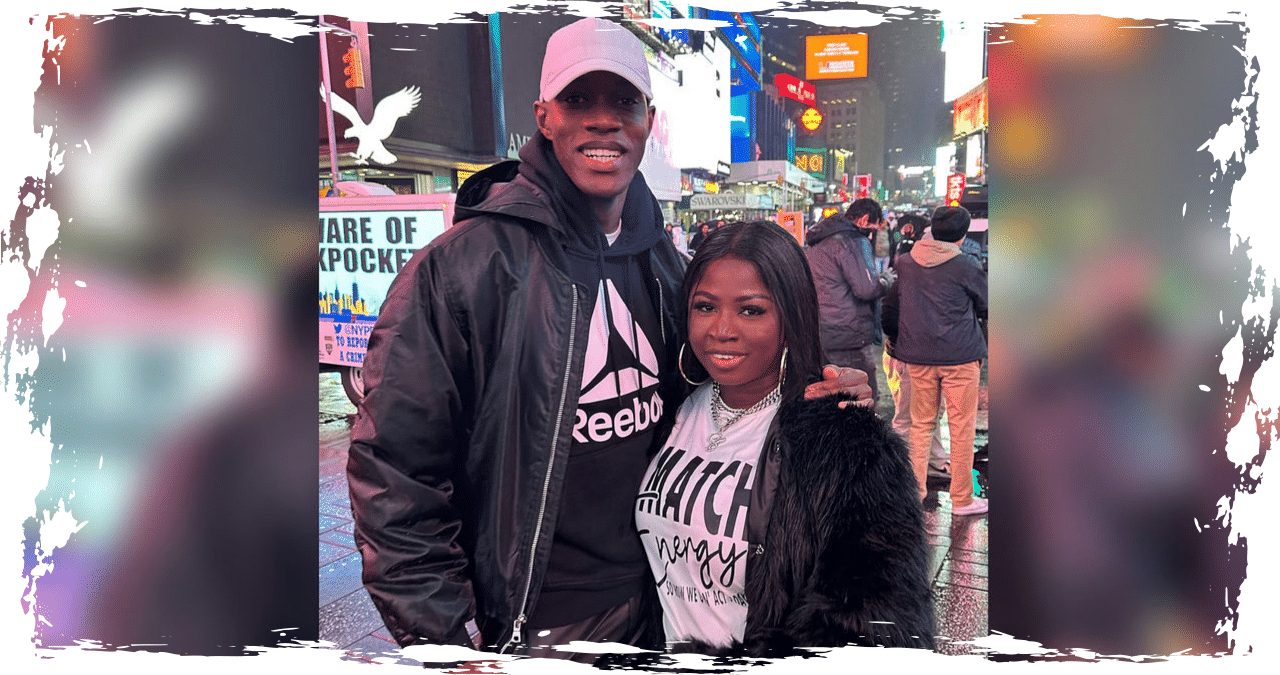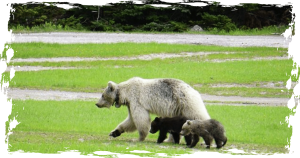When Xavier Walker was outed as gay, his greatest fear was the possibility of being killed.
Reflecting on his difficult childhood, Walker, an asylum seeker from Jamaica currently residing in the United States, shared with ABC News the need to be constantly vigilant while attending school in his community.
According to Walker, in order to avoid trouble, it was necessary to act and pretend to be straight, avoid making eye contact and drawing attention to oneself. Being identified as gay could lead to serious consequences.
The Offences Against the Person Act in Jamaica deems homosexuality as illegal.
According to the Institute for Strategic Dialogue, there has been a rise in anti-LGBTQ+ sentiment across the globe as political movements opposing gender and sexual minorities gain momentum.
Walker expressed his hope for Jamaica to become more open-minded in the future, but he believes it won’t happen anytime soon. He cited the example of Gay Pride events, which may seem like progress, but the reality is that violence against the LGBTQ+ community still occurs. “Sometimes when I see, for example, Gay Pride happening there, I think: ‘Okay, they’re being more open.’ But then I hear on the news ‘Oh, someone just got killed because he’s gay,'” he said.
He expressed his disappointment, stating, “They seem to be moving backwards instead of forwards, despite any progress they may have made.”
According to activists, the Jamaican government has yet to repeal its 1864 anti-sodomy laws, despite its claims that these laws are not being enforced. These laws have remained in place despite the pleas of activists who argue for their removal.
When he was around 9 years old, Walker experienced sexual abuse from an older male relative. Despite being a victim, some people in his community believed that he was to blame for the abuse. This misguided belief led to years of discrimination and stigma against him for being gay.
According to Hester Moore, who is the director of gender-based violence programs with HIAS, a nonprofit organization that provides humanitarian aid and assistance to refugees worldwide, queer individuals experience high levels of discrimination in both public and private domains. This discrimination extends to various areas such as seeking public services, healthcare, education, and even employment.
At the young age of 22, Walker made the decision to leave Jamaica and seek asylum in America. Since then, he has been patiently waiting for his application to be accepted as a client of Immigration Equality. This organization offers free legal assistance to LGTBQ+ asylum seekers and refugees, and Walker has been relying on their support for nine years now.
According to Moore, anti-migration sentiment towards queer asylum seekers is prevalent worldwide, with the language used remaining largely the same. This language creates a sense of exclusion and otherness, contributing to a specific type of violence that refugees, especially those who have experienced harm based on their gender, feel most acutely.
Despite the surge of anti-LGBTQ+ laws and hate, as well as heightened scrutiny on immigration policies, the U.S. remains a sanctuary for many queer migrants seeking safety.
According to Derek Loh, an attorney for the Acacia Center for Justice, seeking protection in the United States does not necessarily mean that individuals who identify as queer, trans, or gay will be safe from harm once they are able to enter the country. While they may not be in immediate danger, the reality is that the risks and dangers associated with their identities do not simply disappear.
According to Loh, the immigration process can be incredibly grueling, particularly for individuals seeking asylum due to discrimination based on their sexual orientation. The bureaucratic nature of the process only adds to the difficulty and can make it a daunting and overwhelming experience.
According to Immigration Equality, individuals who are seeking asylum in the United States need to show that they have a “well-founded fear of persecution” based on one of five factors, which include race, religion, nationality, political opinion, or membership in a particular social group. It is important to note that being a member of the LGBTQ+ community is classified as a particular social group.
To support your asylum claim, it’s crucial to present corroborating evidence. For instance, if you’re seeking asylum based on your sexual orientation, gender identity or expression, it’s essential to prove it. Similarly, if you have been persecuted in your native country or have faced intolerable conditions, you need to submit evidence to substantiate your claim. Additionally, if relevant, you may need to provide your HIV status as per the guidelines of LGBT Immigration Law.
According to a study conducted by the Williams Institute at UCLA School of Law in 2021, there is no official public data on the number of migrants seeking asylum based on LGBTQ+ related social groups. However, the study found that out of 1.3 million adult immigrants in the United States who identify as LGBTQ+, 984,800 are documented while 289,700 are undocumented.
According to Loh, the process of disclosing asylum claims can pose a significant risk to those who have been living in secrecy their entire lives for protection.
Loh pointed out that the immigration system is demanding individuals to disclose highly personal information in settings that lack confidentiality or privacy. These conversations frequently occur in communal facilities, such as ICE detention centers, which raises the potential for danger and exacerbates fears.
Loh stated that the key is to create opportunities for individuals to share their experiences in a manner that is both concise and aligns with the specific parameters of asylum within U.S. immigration law. “It’s a matter of carving out the necessary time and resources to assist individuals in telling their stories effectively,” he added.
According to Emem Maurus, an attorney with the Transgender Law Center, the process of seeking asylum in the United States can be a lengthy one. This is due to the backlog of applications and limited staffing in both the immigration courts and U.S. Citizenship and Immigration Services (USCIS).
According to Maurus, an asylum seeker, the journey to seek asylum is not just climbing one mountain, but rather climbing six. He also highlighted that the process has been militarized as a way to discourage individuals from seeking asylum, which is commonly known as a “deterrence policy.”
According to Maurus, there have been several individuals who have given up.
In a recent move, President Joe Biden has signed an executive order that mandates the denial of asylum to migrants who approach the southern border if the number of daily encounters exceeds 2,500 for seven consecutive days.
Earlier this month, a Biden administration official stated that decisive action is being taken to bolster the security of the southern border and curb illegal migration by halting the entry of individuals across the same border.
According to officials, the new executive rule states that the individual’s country of origin is irrelevant and they will be deported back there within a matter of “days, if not hours.”
Nelson García, a Venezuelan asylum grantee, expressed his gratitude for having already gone through the process and being saved. However, he is worried about those who are trying to enter the United States for survival. He believes that they are only seeking assistance, but he is troubled by the barriers and walls that prevent them from requesting a safe haven. García’s concern is genuine, and he hopes that the situation for these individuals will improve soon.
After being persecuted for his sexual orientation, García had to flee his country and waited for seven long years before he could finally find a safe haven.
ABC News spoke with García, who currently holds the position of immigration paralegal manager, about the challenges they faced during the seven-year period. García revealed that they experienced a rollercoaster of emotions, including uncertainty, doubt, frustration, and sadness on a daily basis.
According to García, discrimination against him as a gay man was pervasive and came from all directions.
He revealed that he faced psychological abuse not only from the government but also from his classmates, professors, and even his own family. He admitted that it was a difficult time for him, and he was even physically abused at one point. Unfortunately, he was apprehended by the police while exiting the country and was beaten as a consequence.
Upon arriving in the United States at the age of 21, he recalls feeling disoriented and isolated.
García, who had been battling a traumatic experience for most of his life, expressed that he was barely able to survive on a day-to-day basis. However, he found solace in Immigration Equality, a nonprofit organization that champions for the rights of LGBTQ+ individuals in the immigration system. “I was able to seek refuge and assistance from them,” García said.
As someone who faced discrimination and hostility for their sexual orientation in Venezuela, García finds it comforting to experience Pride month in the U.S.
In an interview with ABC News, he expressed his sense of fulfillment saying, “I feel complete.” He also shared that he has come to terms with his sexuality, saying, “I made peace with myself and realized that there was nothing that I needed to change because of being gay. There’s nothing to worry about in terms of who I am and what I am right now.”
As Maurus celebrated Pride Month in 2024, he took a moment to reflect on a powerful quote from Marsha P. Johnson, a transgender trailblazer and instrumental figure in the Stonewall riots of 1969. The quote, which reads “no pride for some of us without liberation for all of us,” resonated deeply with Maurus and reminded him of the ongoing fight for equality and justice within the LGBTQ+ community.
According to Maurus, Pride month serves as a reminder of the progress made by the LGBTQ+ community. However, the fight for complete liberation is far from over as members of the community continue to face detention and unnecessary harm during their migration journey. Maurus believes that until this issue is resolved, there is still a long way to go towards achieving the freedom of all individuals.



